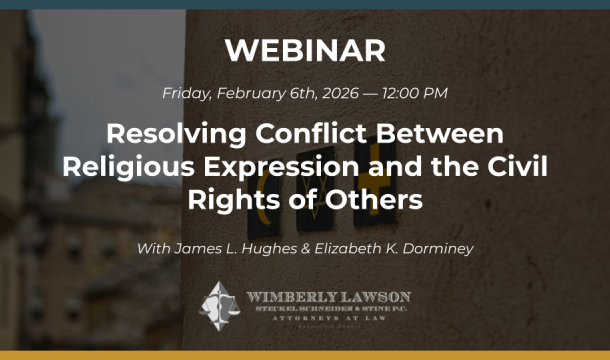Does Your Employer Have Illegal Rules on the Books?
The above heading actually comes from a union publication urging employees to review all company rules and policies and challenge them with the NLRB. In August, the NLRB in its Stericycle ruling set forth a new, game-changing standard, in determining whether company rules are illegal, because they "chill" worker activity for unions and other concerted activities to improve working conditions. The lone Republican on the Board dissented, complaining that the new standard returns the NLRB to "a bygone era . . . when the Board rarely saw a rule it did not find unlawful."
According to Stericycle, if a reasonable employee could read a rule as limiting union or other concerted protected activity, it is illegal and must be withdrawn or re-written to clarify that it does not apply to protected activities. More worrisome is the possibility that discipline pursuant to an overbroad rule is itself illegal. An overbroad rule is illegal even if there is some legitimate purpose for it and even if it has never been enforced against union or other protected activity.
Among the rules likely to be deemed to be illegal under the Stericycle doctrine are the following examples:
-
No taking pictures of employer facilities
-
No recording conversations with managers
-
No sharing information with outside media
-
No discussing wage rates with fellow employees
-
No failing to work "harmoniously" with fellow workers or managers
-
No disclosing company investigations
-
No communicating with employees or supervisors in an unprofessional or disrespectful manner
-
No taking part in activities that "adversely reflect" on the integrity of the company
-
No behaving in ways that "damage" the company's reputation
-
No harassment of fellow employees.
As workforce activists have been increasing across the country, unions are leading efforts in all workplaces to stir up such activism. Employers can expect increased challenges to their work rules, and we believe that almost every U.S. employer has some policy in violation of Stericycle. Another danger is that under the new NLRB Cemex standard, an employer committing any objectionable unfair labor practices can be ordered to bargain with the union from a "card-check."
Competent labor counsel should be sought to review employer rules and policies to limit the danger. Most rules can be revised in a manner to accomplish their intended purposes without violating the law.
This article is part of our January 2024 Newsletter.
View newsletter online
Download the newsletter as a PDF
Related Content
Get Email Updates

Effect of Administration’s Abandonment of Disparate Impact in the Area of Discrimination Continues to Be Felt

Issues Arise for Employers Concerning the Overtime Tax Break

NLRB To Move Quickly as Quorum Is Restored

EEOC Issues New Guidance on National Origin Discrimination

Resolving Conflict Between Religious Expression and the Civil Rights of Others



